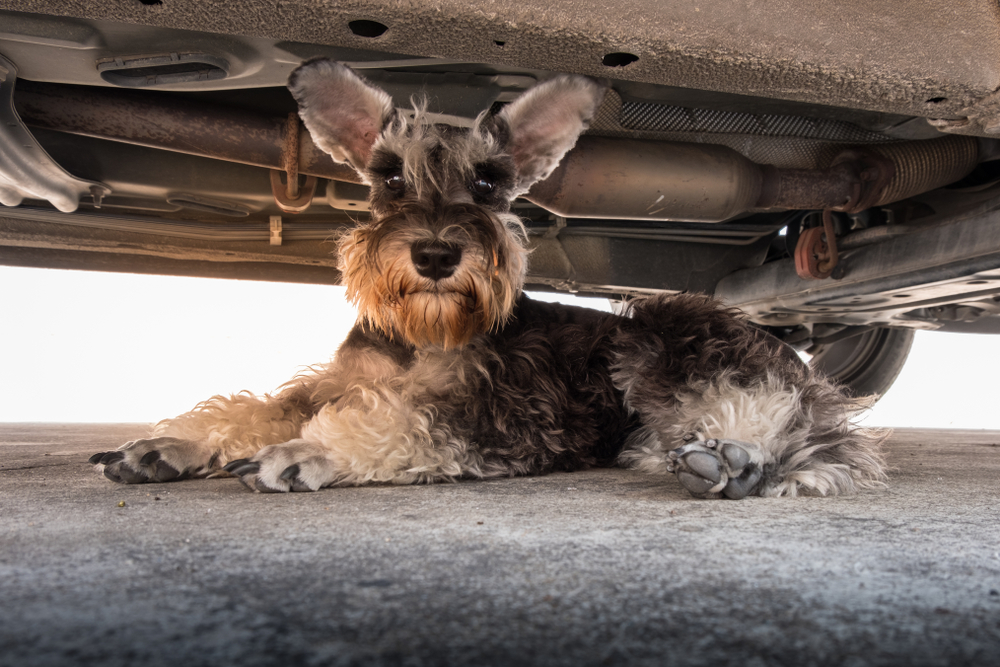When it comes to winter dangers for pets, antifreeze is at the top of the list. Unfortunately, this highly toxic substance is used by many people throughout the winter. It can leak and it is so easy for a pet to be attracted to the taste. Luckily, pet-safe antifreeze alternatives help your cars run correctly in the cold without putting your animals at risk.
Pet-Safe Antifreeze
Most antifreeze options contain a chemical called ethylene glycol, which is very toxic to animals. Pet-safe alternatives instead opt for propylene glycol. While animals should not ingest this chemical in high doses, it is a far safer option that offers similar functions to traditional antifreeze. Propylene glycol keeps cars running well in the cold but is anti-corrosive, biodegradable, and recyclable. This means that it is safer for living beings and for the planet, too. You can request a pet-safe antifreeze option at your dealer or local auto parts store. Many mechanics and technicians will add it if you ask for it at your next service appointment.
Dangers of Non Pet-Safe Antifreeze
Regular antifreeze brands made with ethylene glycol are very toxic and affect the nervous system and the kidneys. Even just ingesting a small amount can lead to a fatal outcome for an animal. Unfortunately, antifreeze has a sweet taste that is appealing to many animals, so it’s important to keep it entirely away from pets–including drips and leaks.
Keeping Antifreeze Out of Reach
Antifreeze is often used in car cooling systems, home plumbing systems, and even accessories like snow globes. Keep pets away from the garage or storage closet where toxic products like antifreeze are kept. Do not leave pets unsupervised near parking spots where antifreeze might have leaked from a car. When throwing away products with antifreeze, secure them safely in the trash where an animal cannot reach. Wash your pet’s paws after a walk in case you unknowingly walked through some.
Signs of Antifreeze Poisoning in Pets
It’s easy to miss some of the immediate signs of antifreeze poisoning, but every second counts after ingestion. Pay attention to any of the following side effects, and call your vet right away if you see any of them:
- Unsteadiness on feet
- Vomiting
- Drinking or urinating more frequently
- Refusal to eat
- Seizures
- Significant change in affect (like depression)
Getting Help for Antifreeze Poisoning in Pets
Ingesting antifreeze is considered a veterinary emergency and requires immediate medical attention. If you suspect that your animal has swallowed some antifreeze, take the animal and, if possible, the container to the veterinarian as soon as possible. If the vet has the antifreeze container, it will help determine the best treatment options for the animal.
Consider switching to pet-safe antifreeze the next time you need to add antifreeze to your car. It could be a matter of life and death for an unsuspecting pet.
If your pet is experiencing an emergency, call Union Lake Veterinary Hospital at (248) 363-1508 immediately. We will let you know if it’s an issue we can help with or direct you to an emergency hospital that can help you quickly. Our caring team ensures that you and your pets have access to the veterinary care you need when you need it.

